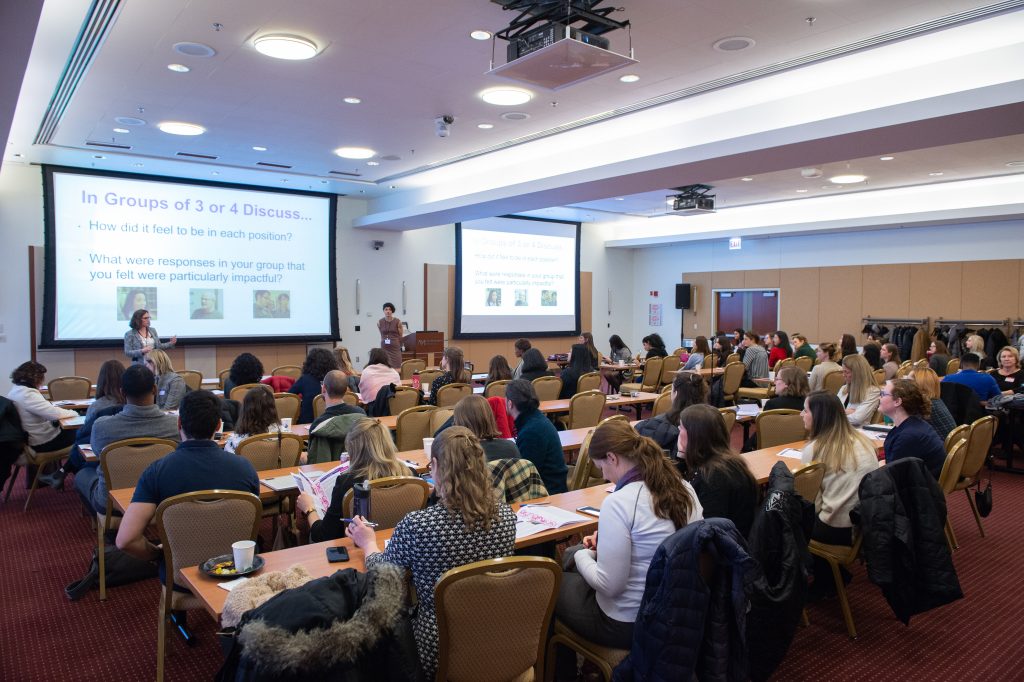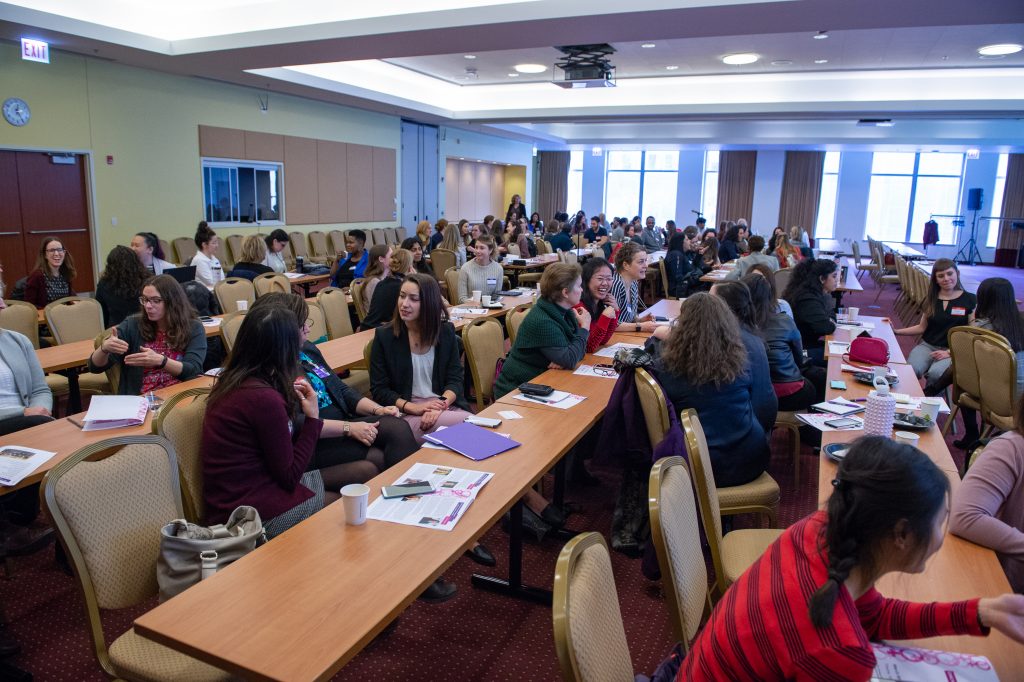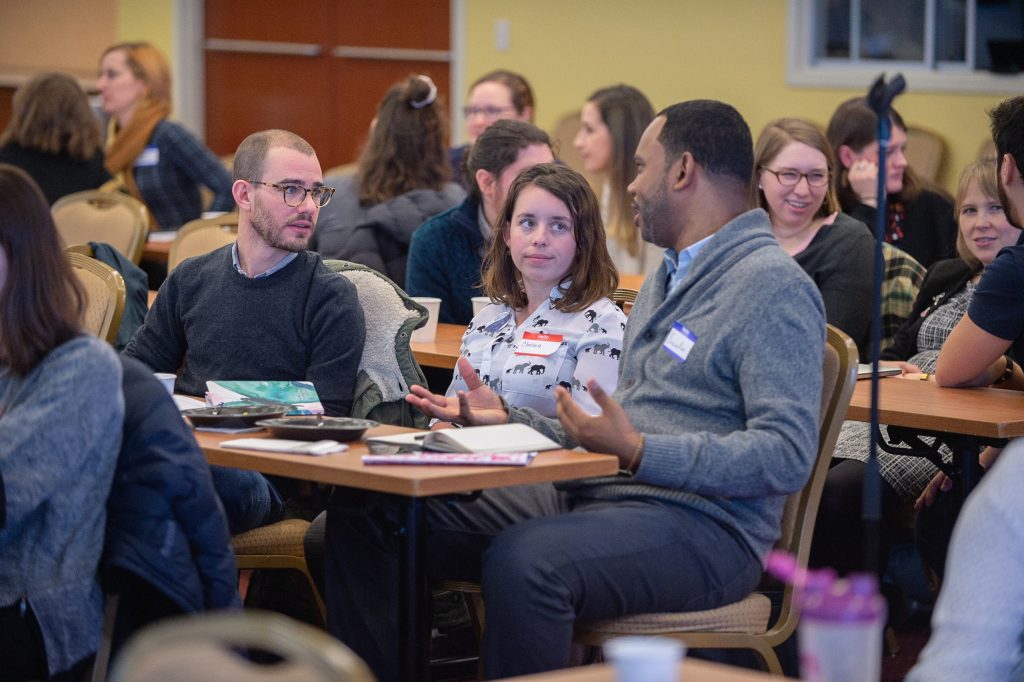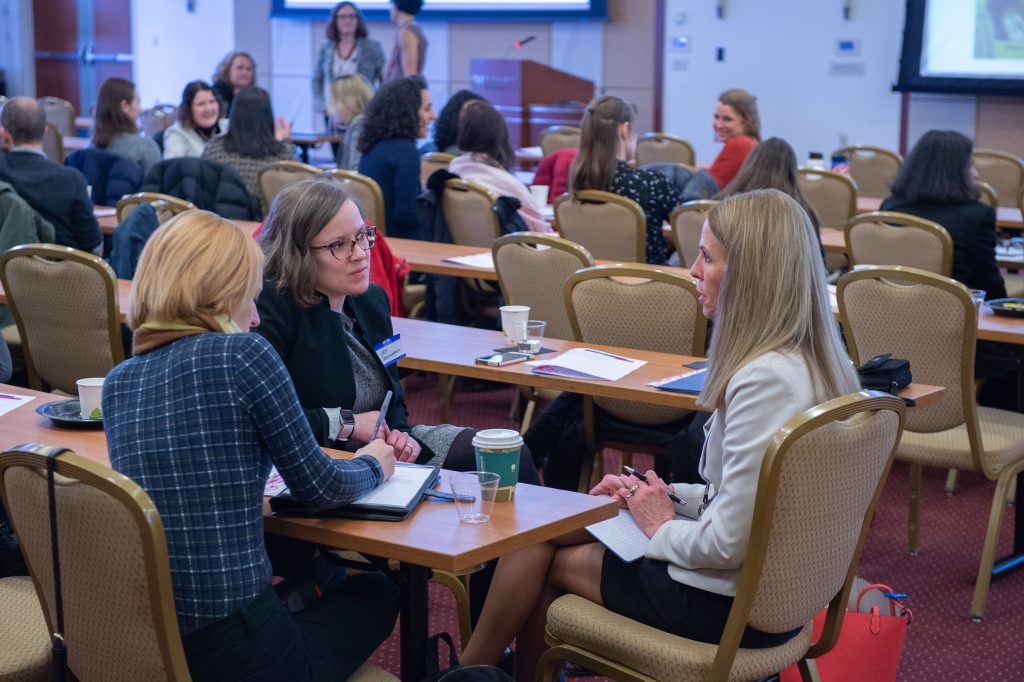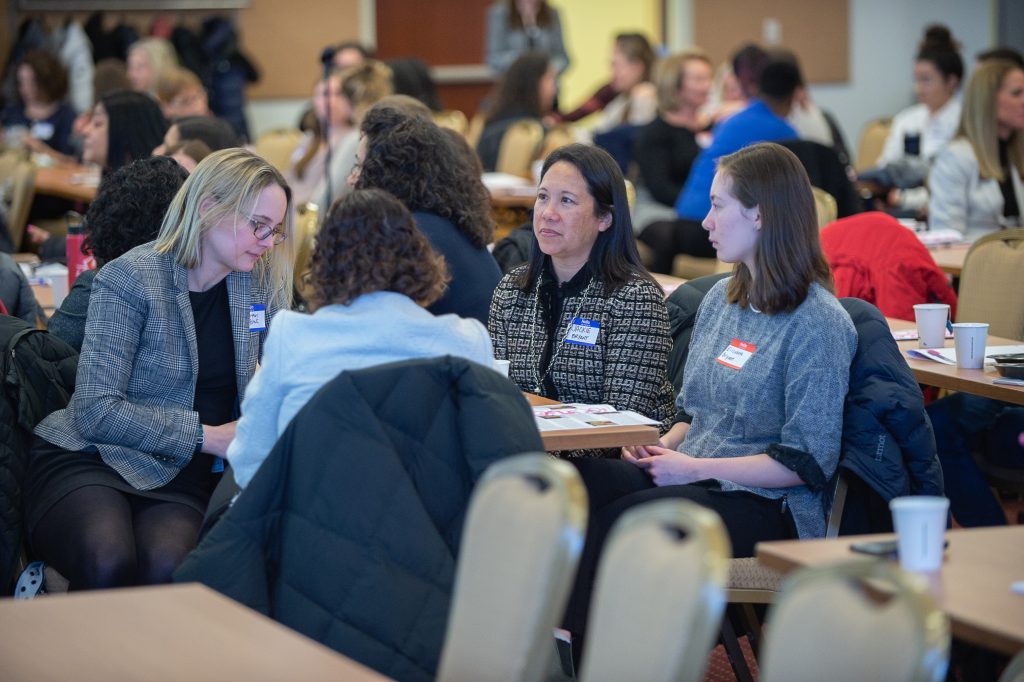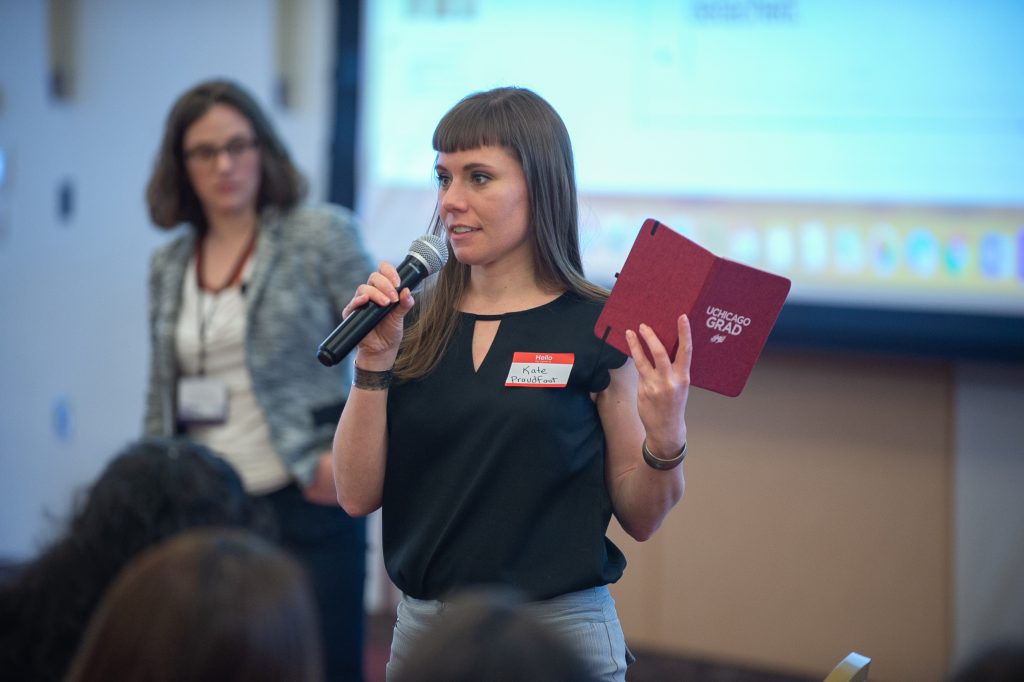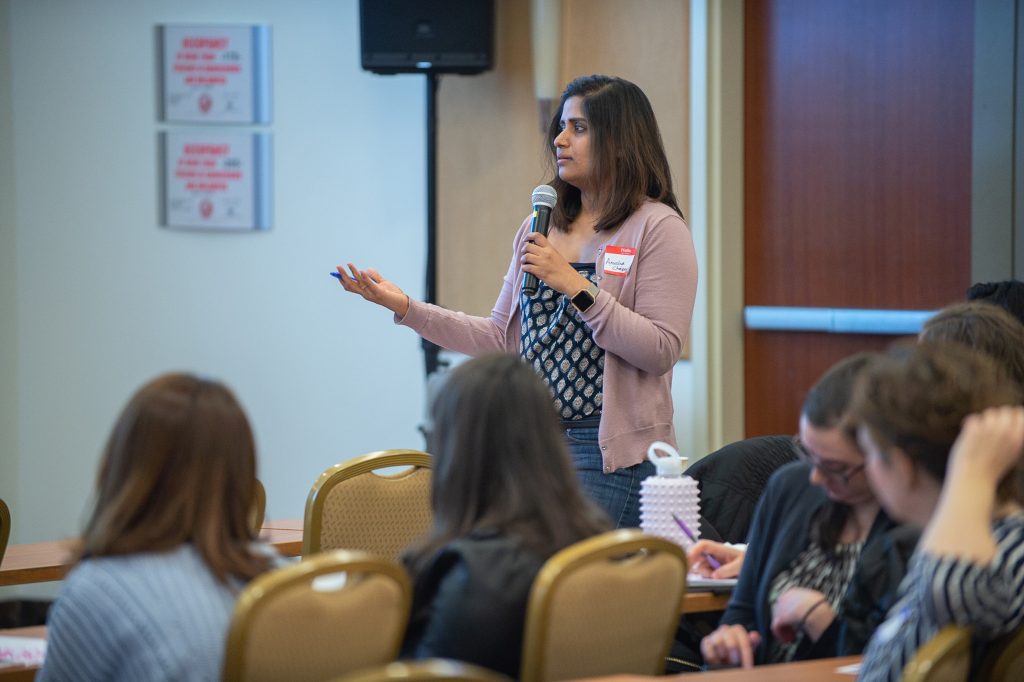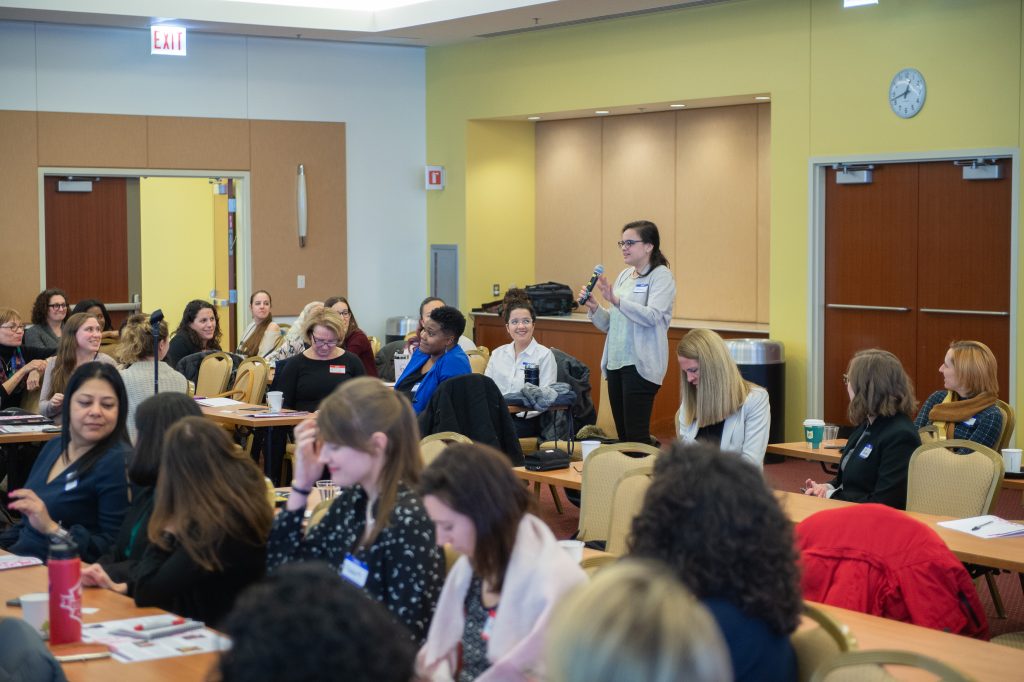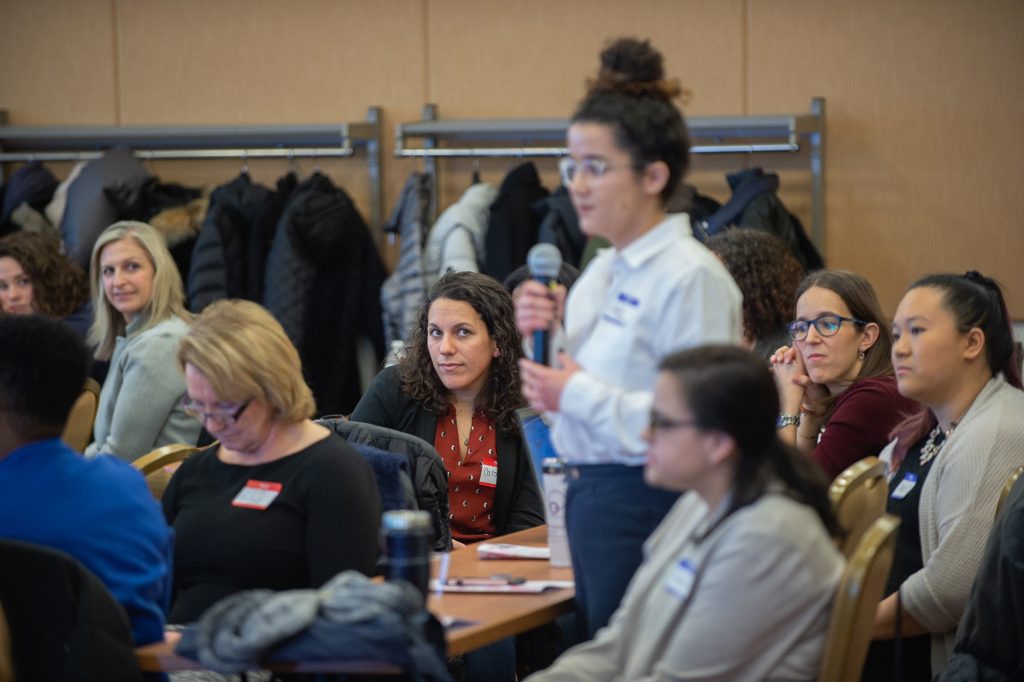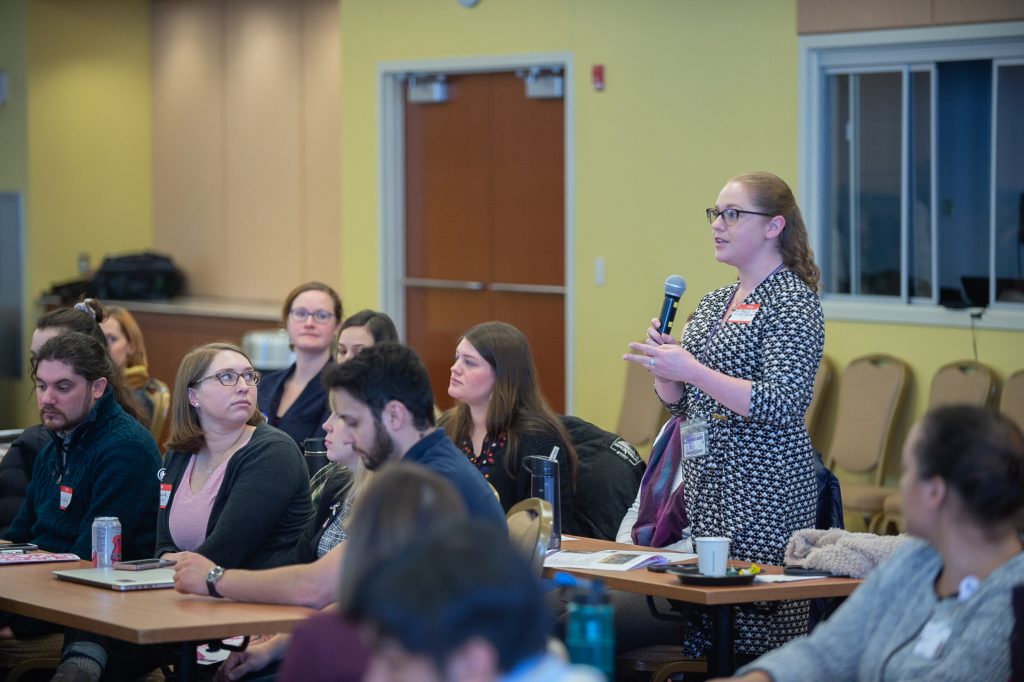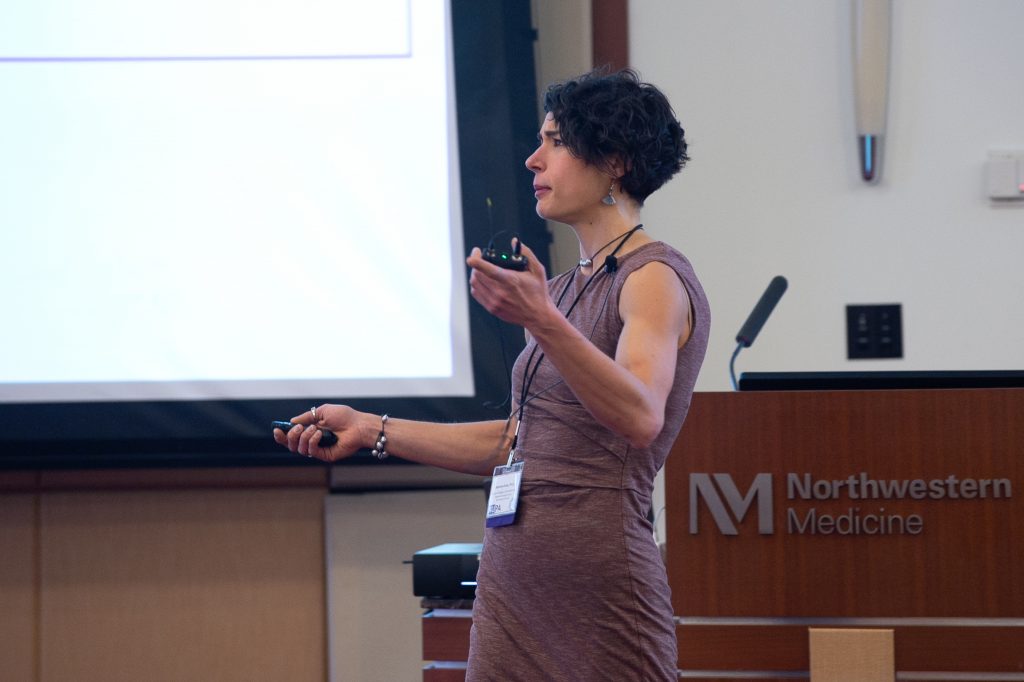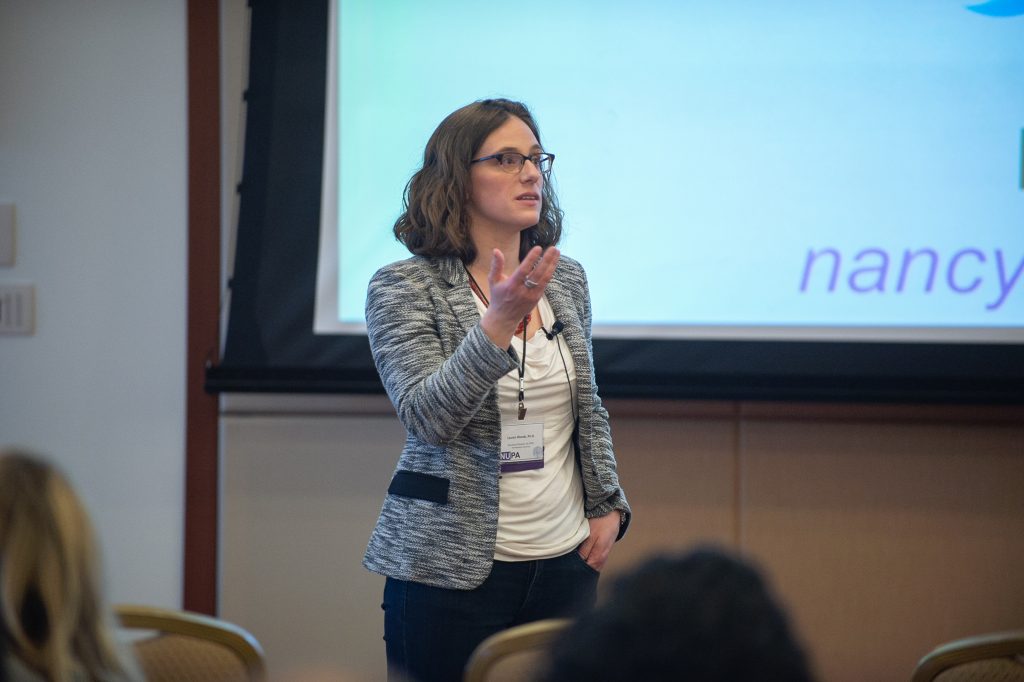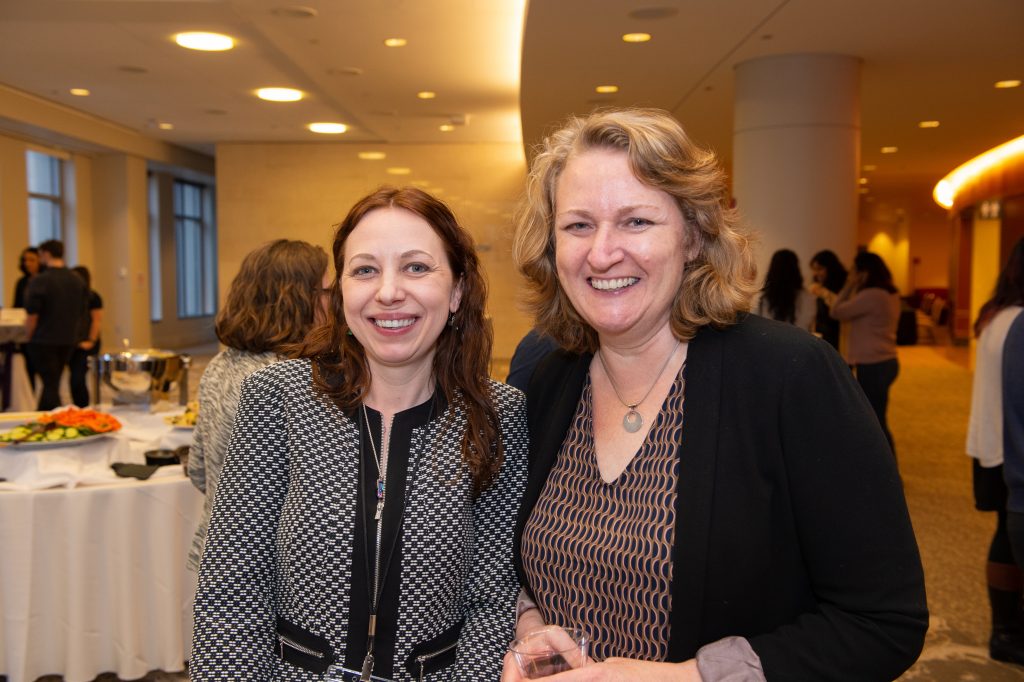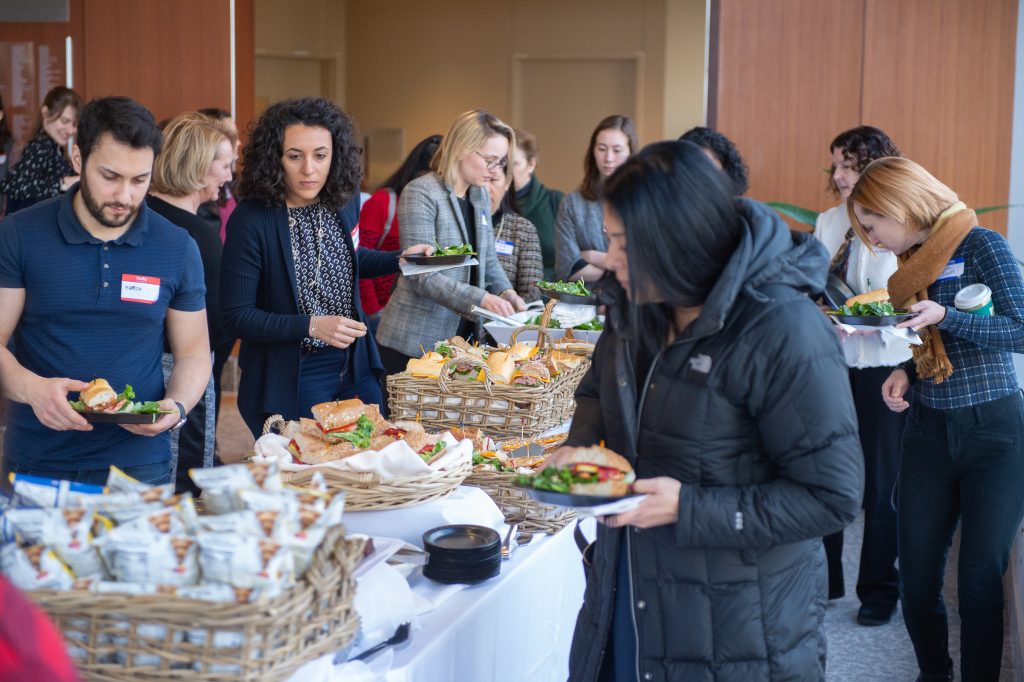Navigating Gender Bias in STEM from the Inside Out
Workshop Description:
Implicit biases influence equity outcomes broadly, particularly for women in STEM. Impacting all stages of career development, implicit biases influence the quality of mentorship, letters of recommendation, promotion, and pay that women receive. Because they are so pervasive, it is critical to develop strategies to identify our own personal biases, anticipate how they might manifest, and recognize when we may have been biased against. During this interactive workshop, participants will explore personal biases, discuss ways to mitigate them, and practice strategies for interrupting incidences of bias against themselves and others. Whether as a bystander, recipient, or unknowing perpetrator, together our actions can work to lessen the impact of implicit biases.
This interactive workshop (adapted from Workshop in a box: Breaking the Bias Habit, UW-Madison, WISELI) ran from 11:15-12:45 pm and was facilitated by our collaborators at Northwestern’s Searle Center for Advancing Learning & Teaching.
Meet our Facilitators:
Nancy Ruggeri, Director, Graduate and Postdoctoral Programs,
Searle Center for Advancing Learning and Teaching, Northwestern
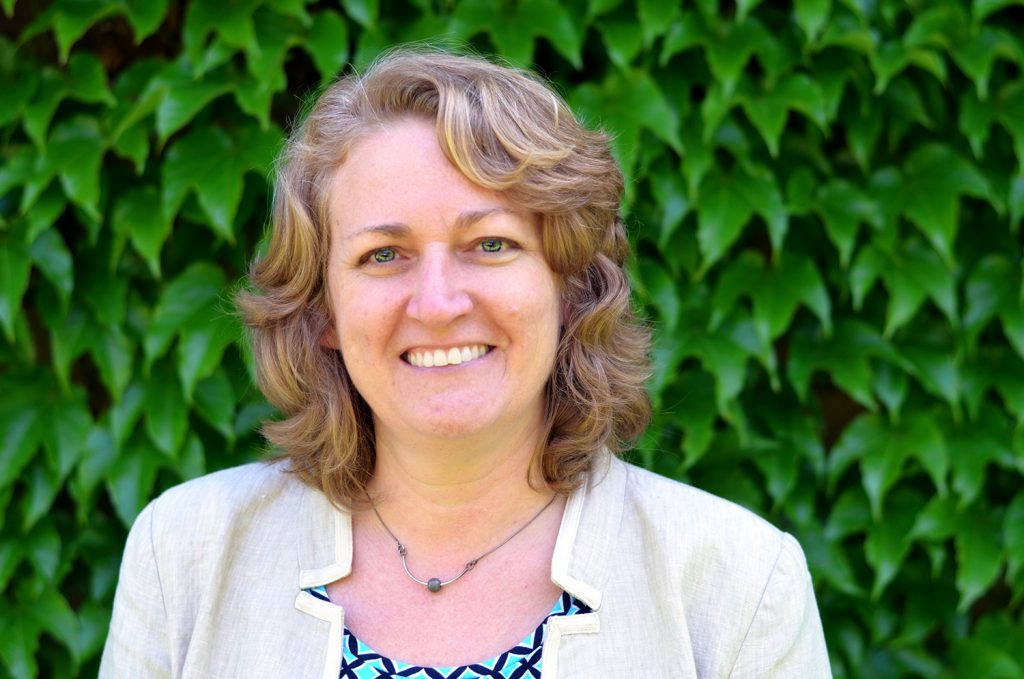
Nancy Ruggeri, PhD is Director Graduate and Postdoctoral Learning at the Searle Center for Advancing Learning and Teaching. She is also institutional co-leader for the Center for the Integration of Research, Teaching, and Learning (CIRTL) at Northwestern, which aims to improve student learning in STEM by providing professional development for future faculty. With disciplinary backgrounds in the biological sciences and science education, Dr. Ruggeri brings decades of experience in higher education and efforts to increase retention of women and underrepresented minorities in STEM disciplines.
Lauren Woods, Assistant Director of CIRTL, Searle Center for Advancing Learning and Teaching, Northwestern
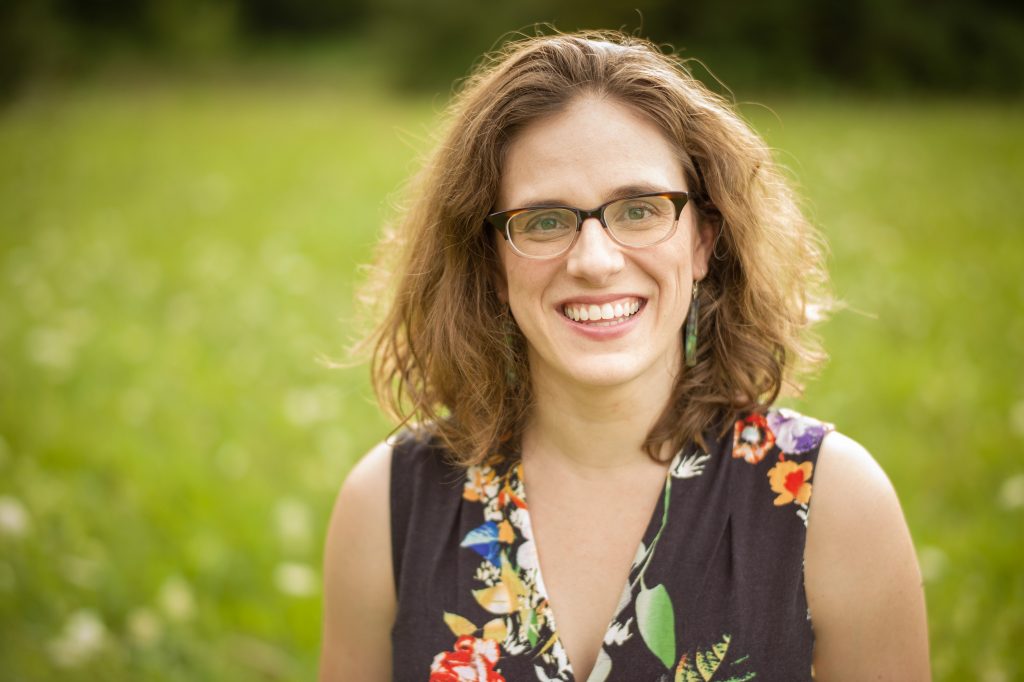
Lauren Woods is Assistant Director of CIRTL at Northwestern. She helps develop, run, and evaluate CIRTL at Northwestern programming including the Searle Teaching-As-Research (STAR) program and Mentored Discussions of Teaching (MDT). Prior to joining the Searle Center, Lauren was a postdoctoral researcher at Davidson College. She holds a B.A. in Zoology from Ohio Wesleyan University and a Ph.D. in Evolution, Ecology, and Population Biology from Washington University in St. Louis. CIRTL, or the Center for the Integration of Research, Teaching, and Learning, is an NSF center that seeks to train STEM graduate students in order to develop a national STEM faculty committed to advancing effective teaching practices for diverse student audiences.
Stephanie Knezz, PhD, Assistant Professor of Instruction, Department of Chemistry, Judd A. and Marjorie Weinberg College of Arts and Sciences, Northwestern
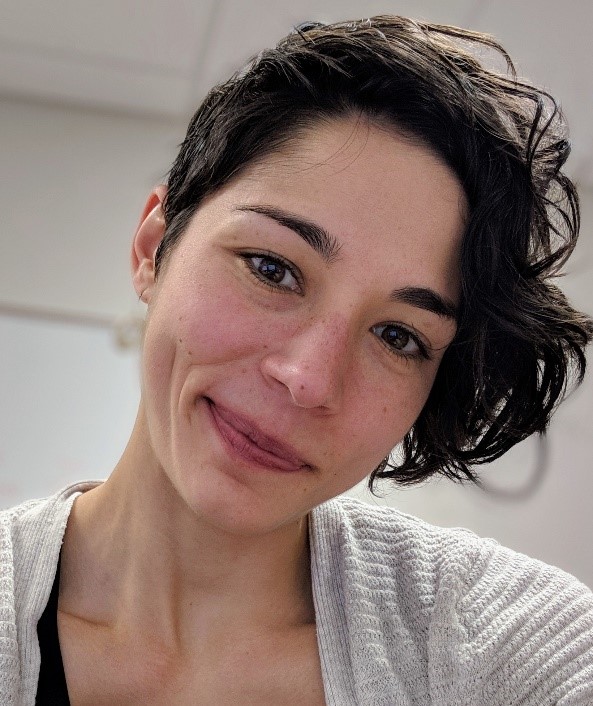
Stephanie Knezz is an Assistant Professor of Instruction and General Chemistry Co-Lab Director in the Department of Chemistry at Northwestern University. She teaches the General Chemistry Lab course that accompanies the main-sequence introductory chemistry course (serving ~500 undergraduates/term) and the analogous course through Northwestern’s School of Professional Studies (serving a wide array of non-traditional students with diverse academic backgrounds). Stephanie studied Chemistry at Butler University (BS 2011) before earning her PhD in Chemistry at the University of Wisconsin-Madison in 2016. During her time at UW-Madison, Stephanie began her involvement in CIRTL (Center for the Integration of Teaching, Research, and Learning) and has been an active member of the CIRTL community ever since. In the Fall of 2018, she co-instructed a synchronous online course through CIRTL, entitled Equity in STEM for All Genders, aimed at promoting gender bias awareness and collaboratively developing strategies to mitigate this type of bias in STEM contexts. In all her courses, Stephanie focuses on promoting identity affirmation and self-efficacy among historically underrepresented students in STEM to promote persistence in their college careers and beyond.


